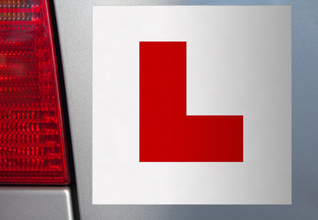Starting off driving can be daunting. You don’t know how to drive, and you’ve never gone through the process of getting an insurance quote before. A learner driver needs to get insurance before getting on the road, and the right type of cover is essential. KennCo can help you with your first steps to getting on the road. We offer both Comprehensive Car Insurance and Third Party Fire & Theft Car Insurance.
As you are new to driving and have no experience on the road, you will be paying a higher insurance premium. As you’re young and may not have the money to get on the road, we want to give learner drivers the lowest cost that we can. We want you to get on the road and feel that independence!
What Insurance Should You Choose

Some learner drivers may want to build up their no-claims bonus before they pass their test, so in this case, we would recommend taking out insurance in your own name. For example, it will be more expensive upfront than being added as a driver to a parent’s policy. But it’s good to build up that no-claims bonus straight away. We offer learner drivers the following coverage:
Third Party Fire & Theft – Third Party Fire and Theft covers you for any damage due to fire or theft. It also covers any damage to third parties where you’re at fault. Damage to your own car is not covered.
Comprehensive – Comprehensive cover is the highest level of car insurance. We will cover the cost of your car and any third parties, even if you’re at fault.
Comprehensive insurance is most popular for learner drivers. As they are relatively inexperienced, it is best to cover yourself for any possibilities.
Calculating Insurance Premiums:
Insurance premiums for learner drivers are a crucial aspect to consider when stepping into the world of driving. These premiums are not arbitrary but are calculated based on a combination of factors to evaluate the risk associated with insuring the learner driver. Here’s a deeper dive into these elements:
Type of Car:
The make, model, and age of the car play a significant role in determining the insurance premium. Cars with higher safety ratings and features often attract lower premiums, while high-performance or luxury cars can lead to higher costs. The cost of repairs and replacement parts for the vehicle is also considered, with more expensive cars typically leading to higher premiums.
Driving History:
For learner drivers, the driving history might include any incidents or violations that occurred while driving under a learner’s permit. A clean record can be a positive indicator, leading to lower premiums, while incidents like accidents or violations can raise the premium.
Safety Features:
Cars equipped with advanced safety features such as anti-lock brakes, airbags, and electronic stability control can lead to reduced premiums. These features minimize the risk of accidents and injuries, making the driver a lower risk for the insurance company.
Discount Opportunities:
Learner drivers can often reduce their insurance premiums by availing themselves of various discounts. Completing advanced driving courses can demonstrate the driver’s commitment to safe driving, leading to reduced premiums. Additionally, maintaining a clean driving record, free of accidents and violations, can also lead to discounts.
Location and Usage:
Where the car is stored and how it’s used can also impact the premium. Cars stored in safe locations and those used infrequently or for short distances can often attract lower premiums.
Personal Factors:
Age, gender, and occupation can also play a role in premium calculations. Statistics related to different demographics and their associated driving risks can influence the cost of insurance.
What You Need to as a Learner Driver
As a learner driver, you must remember a few things to ensure you can drive safely and legally on the road.
Display L Plates

As soon as you pass your theory test and obtain car insurance, you must put up L plates on the rear and front of your car. Driving without L plates is an offence, and you could get 2 penalty points and a fixed penalty of €60 which can then increase to 4 penalty points and a €90 fine if convicted in court.
Never Drive Unaccompanied
As a learner driver, you must drive with an accompanied full driver. That driver could be a parent, sibling, spouse or whoever once they’ve held their license for over two years. It is against the law to drive unaccompanied on a learner permit. If you are convicted of driving unaccompanied or let an unaccompanied driver use your vehicle, then the following penalties apply to you:
- If you drive unaccompanied and own the vehicle, your vehicle may be impounded.
- If you drive unaccompanied but the vehicle is not yours, the owner’s vehicle may be impounded and face a fine of up to €1,000.
An unaccompanied learner driver may also face up to 4 penalty points and a fine of up €120. As you can see, driving unaccompanied as a learner driver is a very serious offence.
Who Can Supervise a Learner Driver
Many learner drivers choose to be added to a parent or siblings policy to get practice between their lessons. As stated above, you need to be accompanied by a fully licensed driver who has held their full license for over two years. Most drivers will benefit from extra practice with parents or a sibling. It helps give you more practice and time on the road before your test.
Get 12 Driving Lessons (EDT)
Essential Driving Training covers the learner driver for 12 sessions of training to help get you safely on the road. The purpose of EDT is to save lives. As a learner, you are more vulnerable to accidents than other drivers due to inexperience. EDT helps you maximise your road safety knowledge and behaviours by giving you the skills and confidence to drive on the road. It is best to spread EDT over six months to ensure that you can practice your skills after each lesson.
If you want to purchase car insurance, get a quote online today! We have more information and FAQs on young driver car insurance to answer all your questions.

